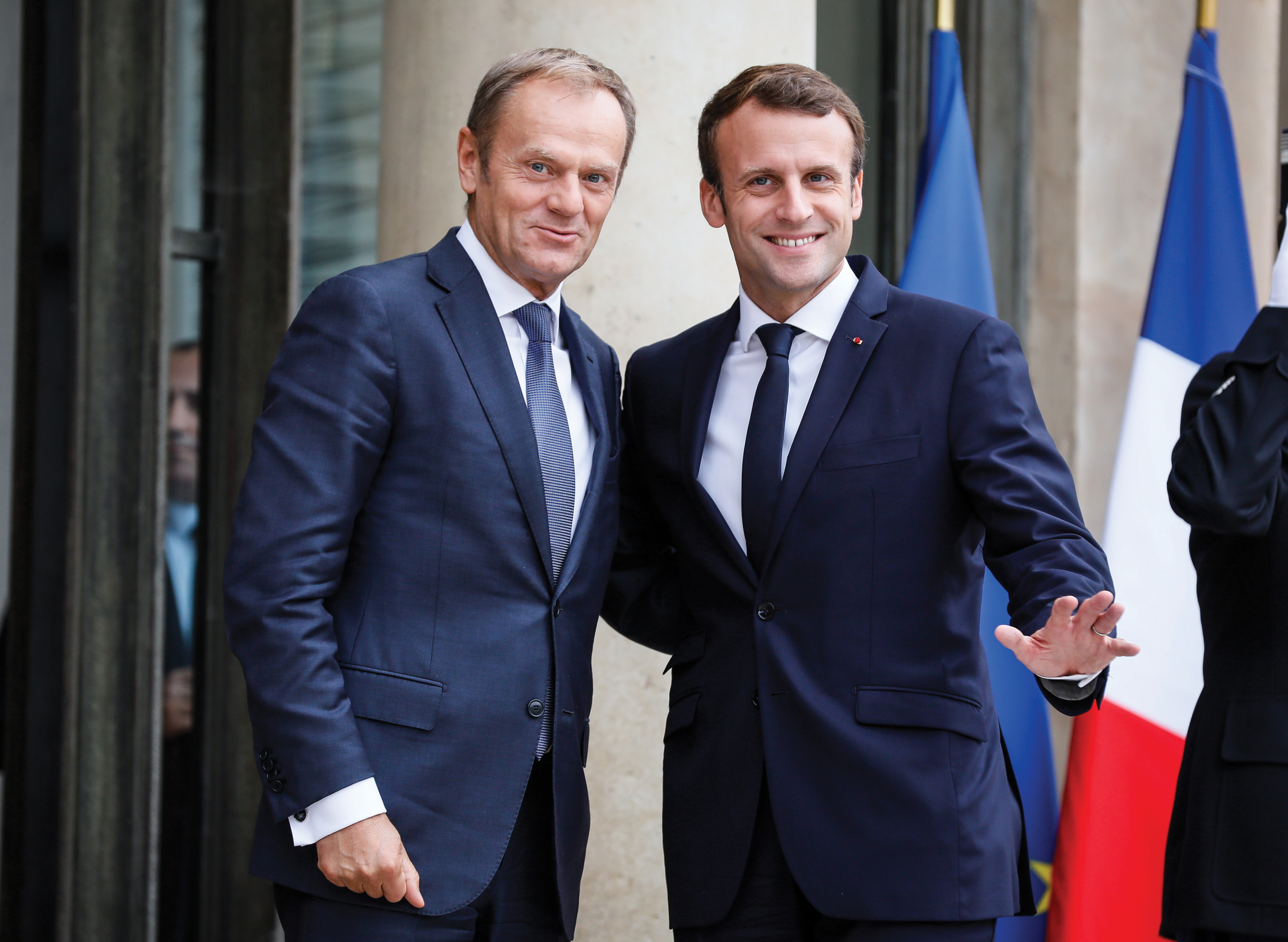Macron flying the flag for EU federalism

The availability of 73 seats vacated by the UK post-Brexit has provided the perfect space for European federalists to push their ambitions for the creation of pan-European MEPs.
The European Union has, for some time, been an uneasy compromise between federal and confederal elements. Despite numerous attempts at reform, most notably the contribution of Tony Blair in 1999, who drove a degree of uniformity through systems of proportional representation, elections at European level remain nationalised.
Despite outlining ambitions for degressively proportional representation – where each state is granted a minimum of six seats and a maximum of 96 under the Lisbon Treaty – the actual apportionment of seats in Parliament has never met the criterion, leading to a situation now where MEPs from France, Britain and Spain each represent more citizens than German MEPs.
Candidates are selected by national political parties, campaign on national platforms on largely national issues and are elected via different national systems. This is despite the creation of confederations of national political parties at EU level. These confederations lack political clout, they have no standing as political parties and are not allowed to campaign within member states.
It has long been pointed out that the current system ignores the European citizen’s right to vote on European, rather than national issues.
The proposal put forward by federalists, most recently France’s Emmanuel Macron in September 2017, was for creating a class of transnational parliamentarians who will be accountable to a European electorate, rather than national ones.
Writing in Verfassungsblog, Andrew Duff, visiting scholar at the European Policy Center in Brussels and a former Member of the European Parliament says: “The introduction of the transnational element would electrify the European Parliamentary election campaigns and stimulate increased turnout. It would satisfy the treaty objective of a uniform electoral procedure and give practical expression to the concept of an MEP as representative of all EU citizens. It would give each citizen a second vote in the election, additional to his or her traditional vote for candidates standing in national or regional constituencies: a tangible manifestation of EU citizenship.”
Resistance to greater federalism in the EU is evident. As well as those who risk losing their seats, there is a natural leaning towards conservatism in the parliament. Brexit, however, has reignited the debate. With UK representatives viewed as largely against the concept of transnational lists, their removal has not only reduced the conservative voice but also forced the parliament to consult on a plan for reconfiguring their 73 seats.
Although progress has been made on this issue, for federalists like Macron, the impact may be smaller than first hoped. In late January, following months of debate, MEPs on the Constitutional Affairs Committee voted overwhelmingly for a compromise agreement to shrink the size of the European Parliament post-Brexit. Although also opened the door for the creation of a new class of member representing a whole-EU constituency.
Under the Committee’s proposal, Parliament will see a reduction in seats from 751 to 705 with the remaining 27 currently British seats being redistributed to compensate for existing biases in representation of other member countries.
MEPs did however back the provision on the creation of transnational lists. The report makes the introduction of the transnational MEPs with constituencies “comprising the entire territory of the Union” conditional to the adoption of a “legal basis” which will need to be provided by a future Council decision.
Writing on the issue Mehreen Khan of the FT says: “Federalism is hardly the order of the day in Europe. For every Macron there is still a Dutch Mark Rutte or Austria’s Sebastian Kurz – leaders who want to use Brexit to put grand integrationist plans on ice and make the European parliament smaller, not more expansionist, after 2019.
“Ultimately the 27 EU member state governments must decide unanimously on how they want to draw up rules for the next election and beyond. For now, the search for the elusive European demos looks set to go on.”





